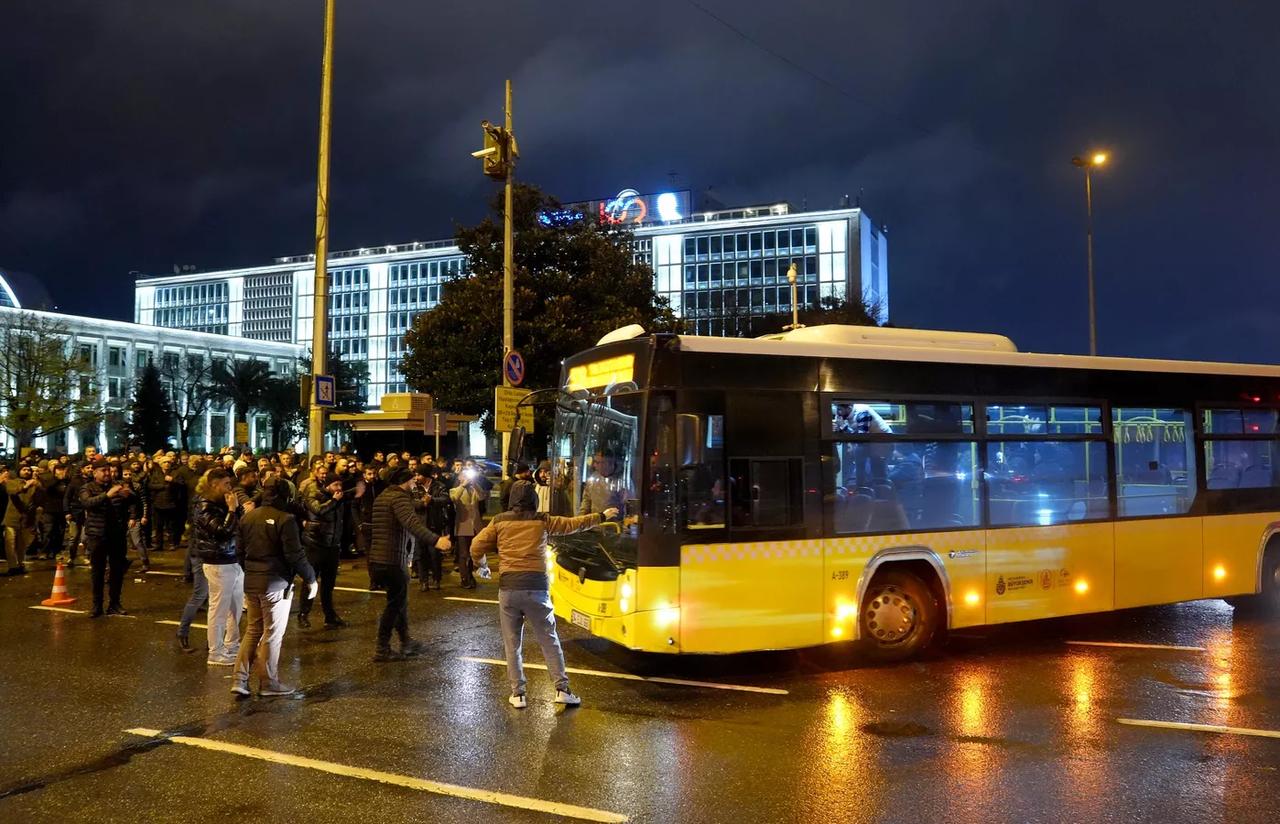
Istanbul’s public transportation system narrowly avoided major disruption on May 22 after a last-minute agreement was reached between the Istanbul Metropolitan Municipality(IBB) and private public bus operators. The deal followed growing tensions over unpaid government subsidies totaling ₺6 billion (about $154 million).
Istanbul’s hotly contested municipal administration, combined with the fact that the city's population is unaccustomed to transportation strikes, has raised questions about whether the decision to strike was politically motivated.
Notably, the IBB did not criticize the strike, and the government has so far refrained from making political statements about the situation.
Goksel Ovacik, president of the Istanbul Private Public Bus Owners Chamber of Tradesmen, who led the strike, announced that it ended after operators were presented with a payment schedule.
Early on May 22, private bus operators in Istanbul began halting operations in protest over what they described as four months of unpaid entitlements by the IBB. The strike, announced days earlier, was framed as a last resort by company representatives, who cited mounting operational costs and chronic delays in municipal payments over the past four years.
Despite initial disruptions, the municipality and representatives from the private bus sector reached an agreement after an early morning meeting. While the exact terms of the deal were not publicly disclosed, a protocol between the two parties is expected to be formalized soon. As a result, bus services resumed the same day, avoiding widespread commuter chaos across Istanbul.

According to official figures, approximately 3,041 private public buses—representing about half of Istanbul’s total fleet of 6,470 buses—temporarily ceased operations on May 22. This sudden withdrawal significantly reduced the availability of private bus services throughout the city.
It is important to note that the strike affected only the private bus operators under contract with the municipality. Other forms of public transportation—including municipal official buses (IETT), the metrobus, metro lines, and trams—continued to operate without interruption, providing critical transit alternatives for commuters during the strike.
Istanbul’s private public buses operate in conjunction with the city’s official transportation network but are independently owned. Under contract with the municipality, these operators are compensated for their services based on ridership and routes, a system that relies heavily on timely payments from the IBB.
However, operators claimed they had not received approximately ₺6 billion in payments—covering four months of service—and that delays and irregularities in compensation had become a persistent issue over the last four years. Representatives argued that under these conditions, continuing service was no longer financially viable.
In a public statement, the private bus owners’ association emphasized that the decision to suspend service was not a bargaining tactic, but a “necessity born out of economic survival.”
The IBB acknowledged the financial delays but stressed that plans were already in place to restructure payment schedules, beginning June 1. City officials also noted they had prepared contingency measures to minimize service disruptions, including deploying alternative municipal vehicles and adjusting route frequencies.
According to the municipality, these contingency plans were designed to prevent service collapse in the event of a strike and included increased operations by the municipality’s transportation company IETT, the city's primary public transit authority.
The dispute underscores ongoing challenges in managing hybrid public-private transit models in megacities like Istanbul. With millions relying on public transportation daily, even short-term service disruptions have the potential to paralyze urban mobility.
The standoff between IBB and private bus operators also reflects wider financial pressures faced by Turkish municipalities amid inflation, currency volatility, and shifting public finance priorities.
Looking ahead, the successful negotiation on May 22 may offer only temporary relief unless structural reforms are implemented to stabilize funding mechanisms and ensure timely payments across Istanbul’s complex public transportation network.
Field reports indicated that some private buses continued limited operations on the morning of May 22.
In Türkiye, private public buses are a distinctive part of the country’s transit system, particularly in connecting remote parts of cities with central areas. Though privately owned, they operate under municipal contracts and are vital to the daily commute of millions in cities like Istanbul.